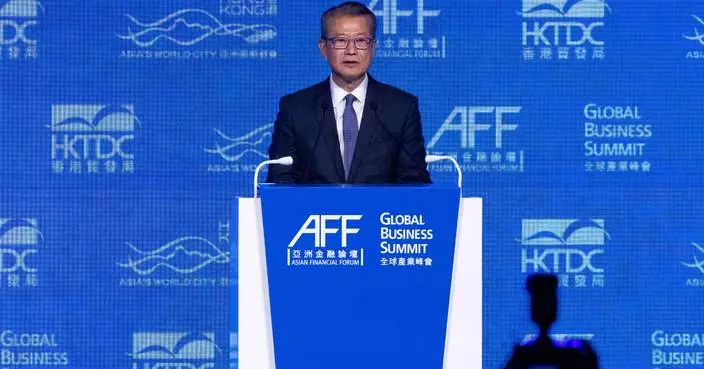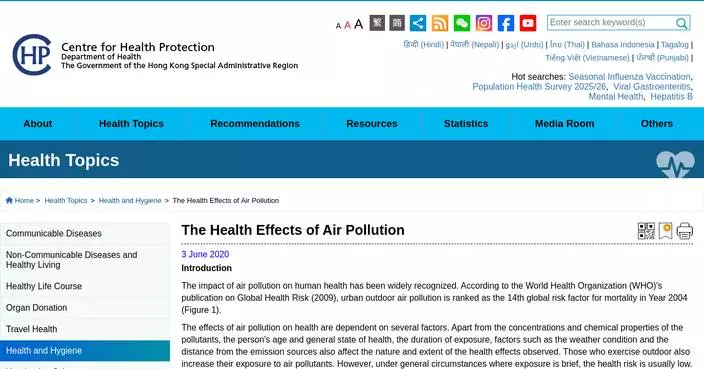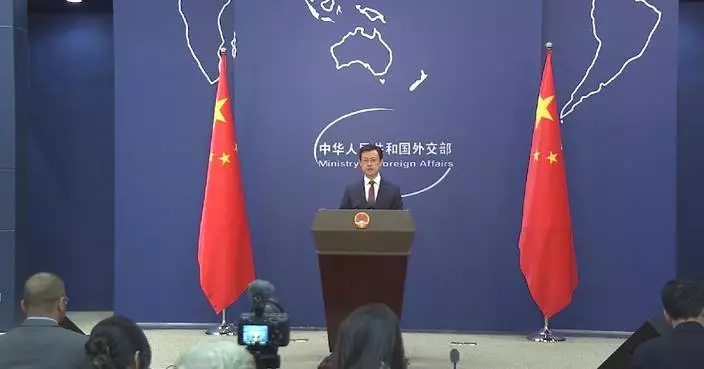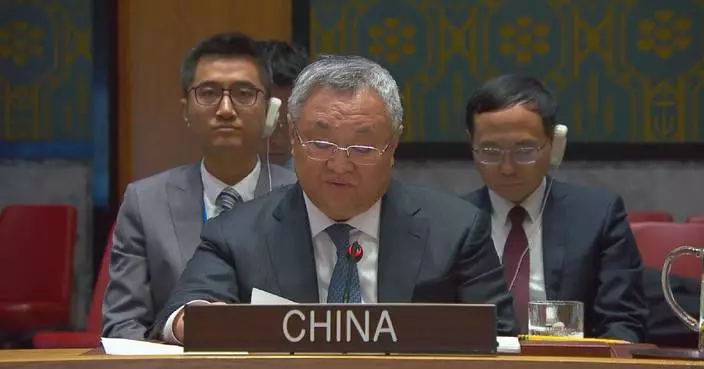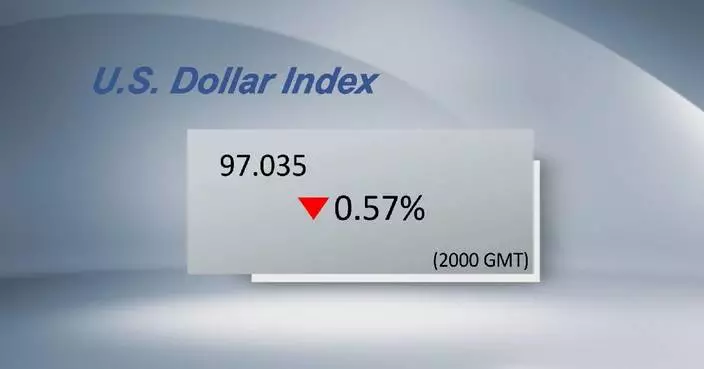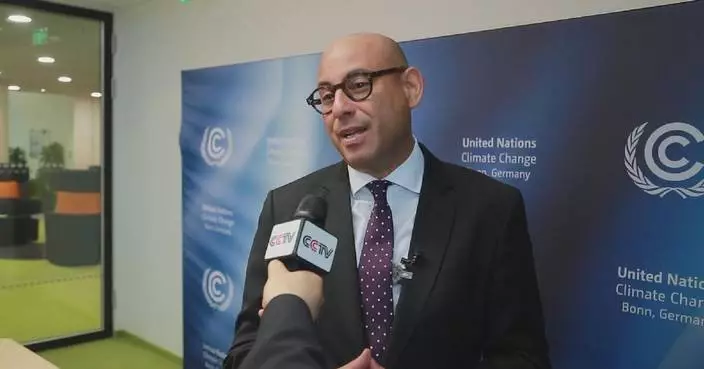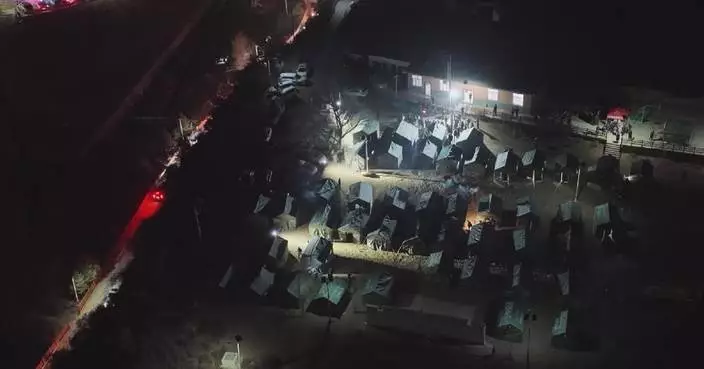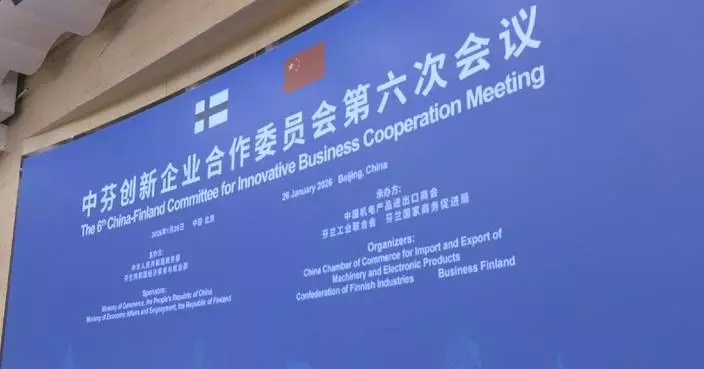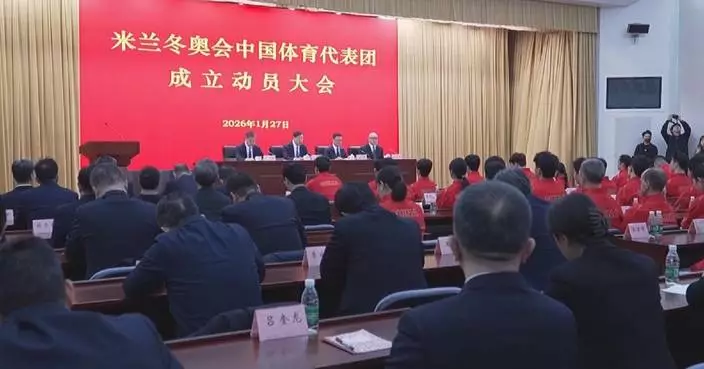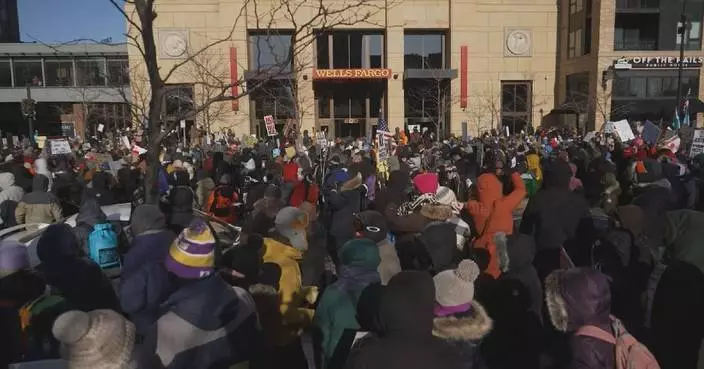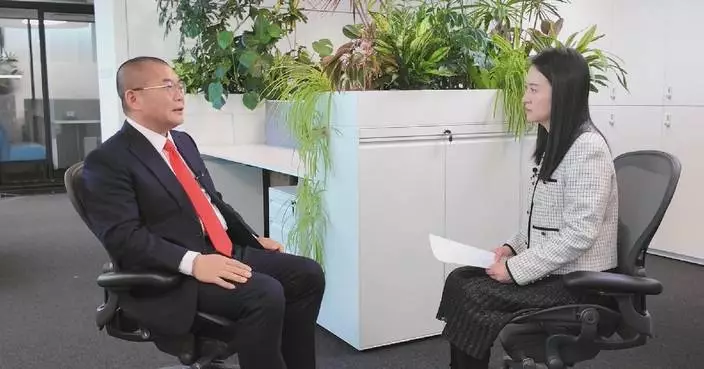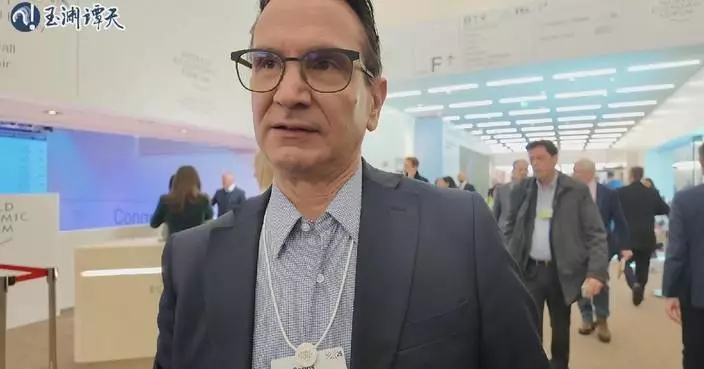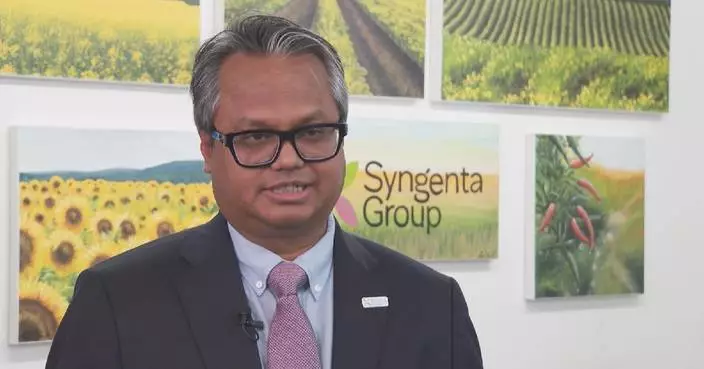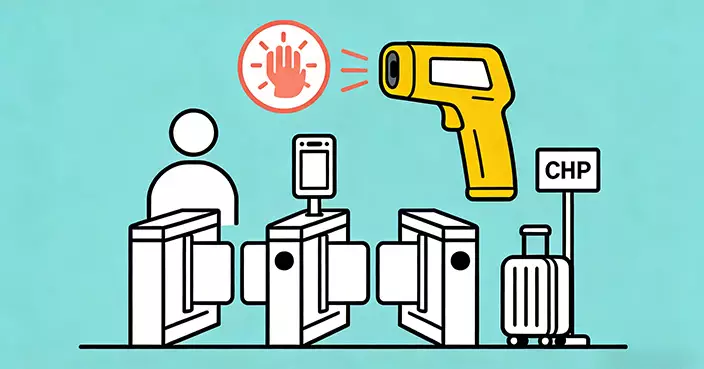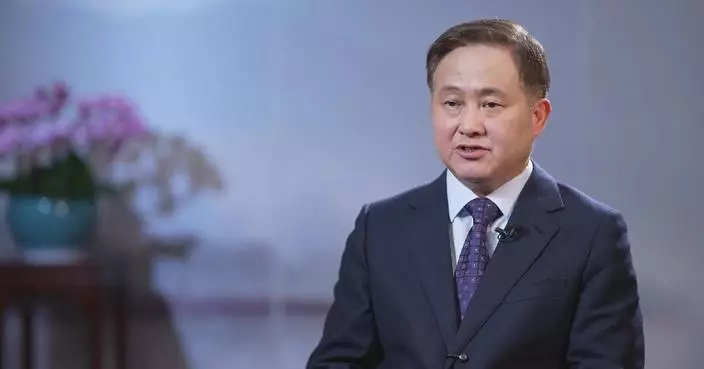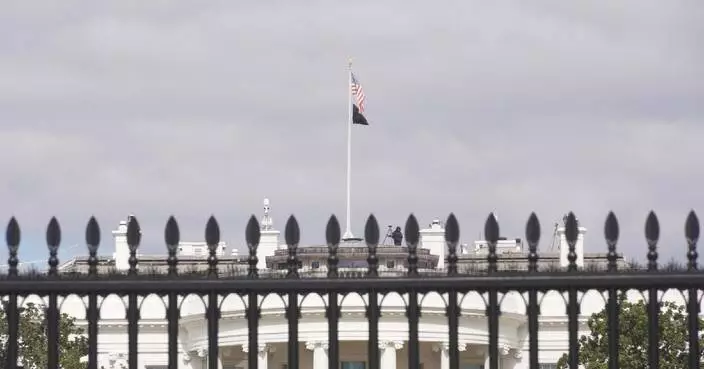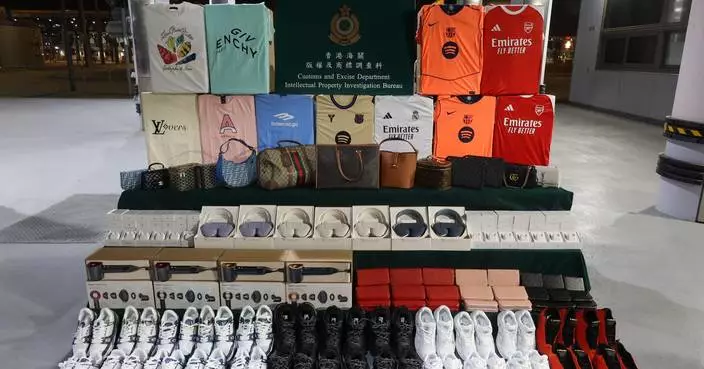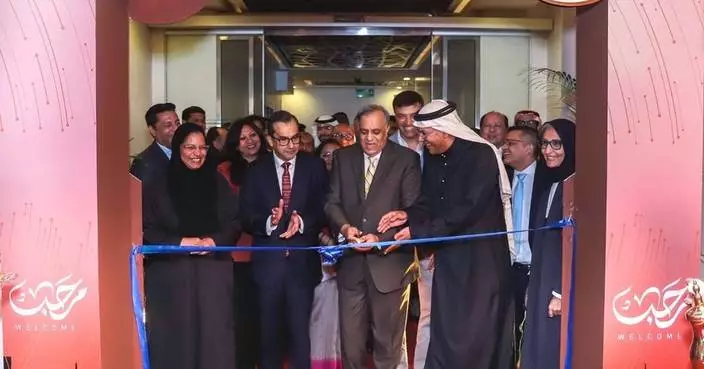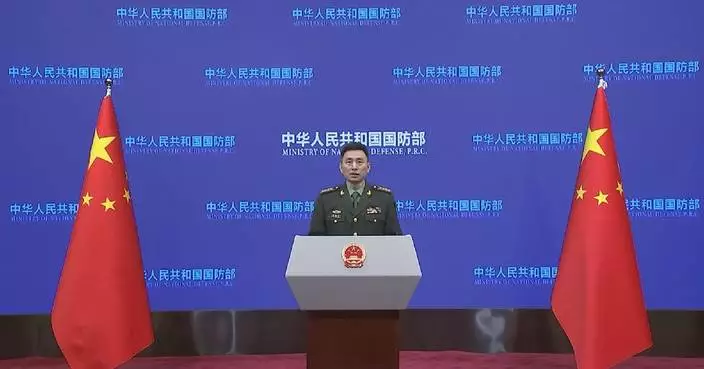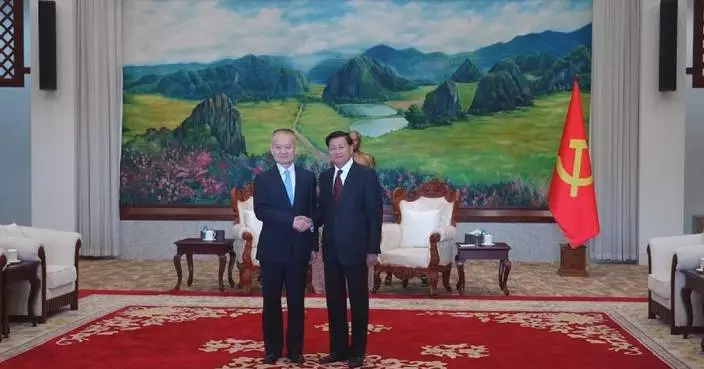Feature · News
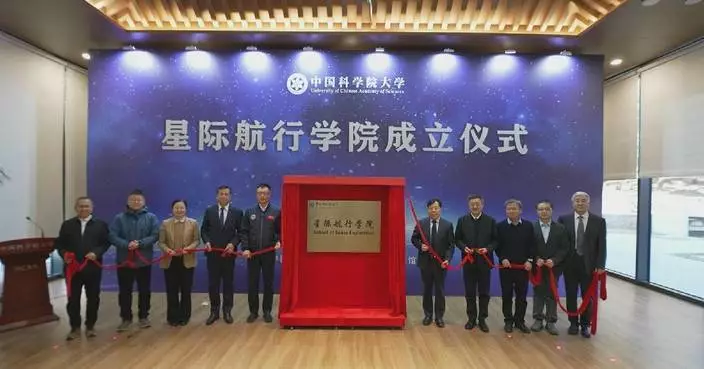
China launches school of space exploration to boost deep-space talent pool

Witness at Alexander brothers sex trafficking trial tells of celebratory night that became a horror
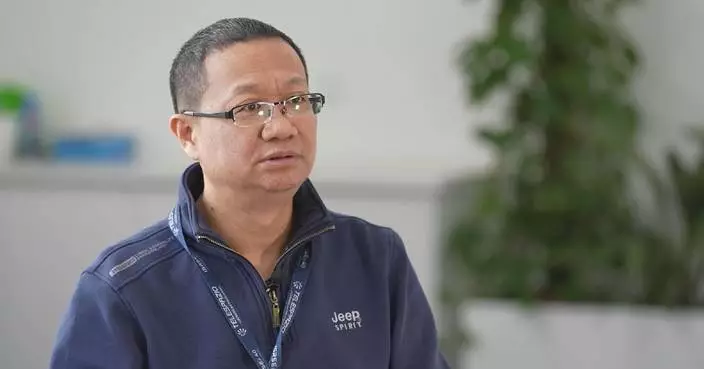
China, Finland integrate strengths to deepen cold-region research

Nearly half a million without power and dozens of deaths. A winter storm's toll, in numbers
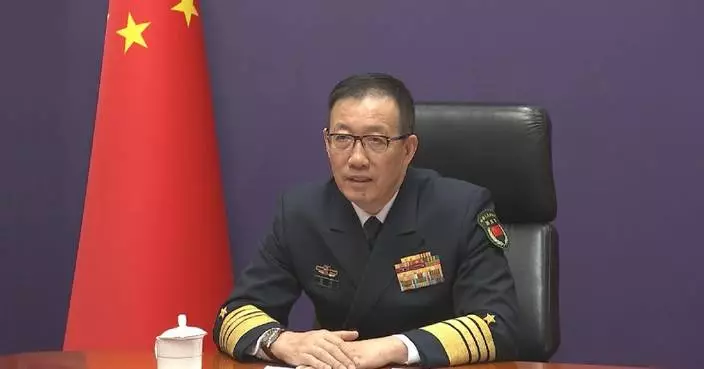
Chinese defense minister holds video talk with Russian counterpart

Finnish PM's visit to China to deliver concrete business outcomes: official
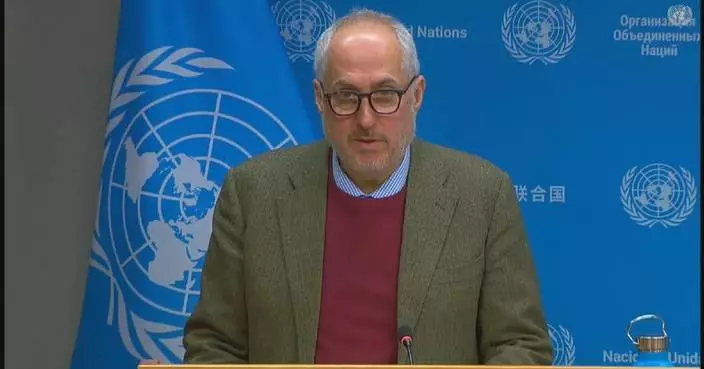
UN calls for full implementation of ceasefire arrangements in Gaza
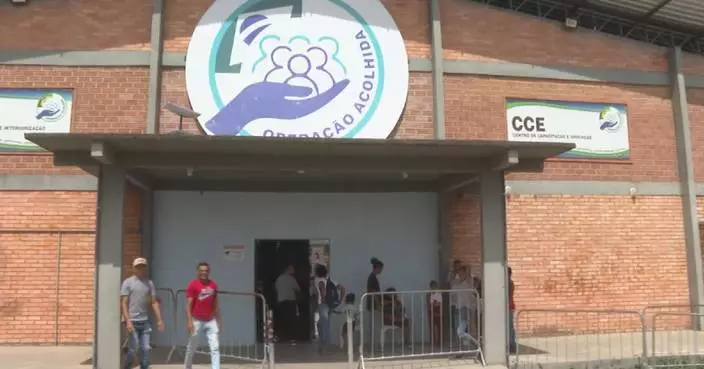
Brazil steps up program to help Venezuelan migrants resettle
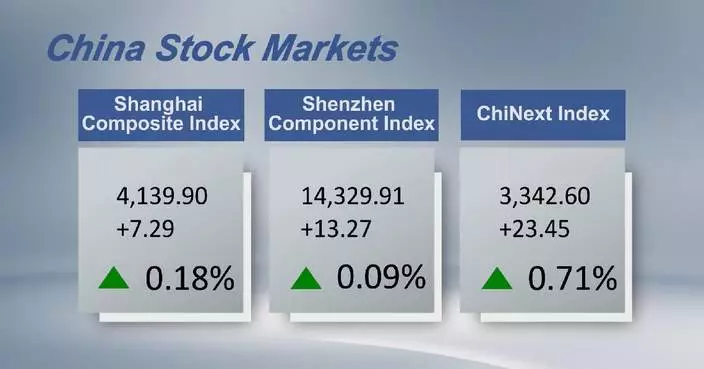
Chinese shares close higher Tuesday
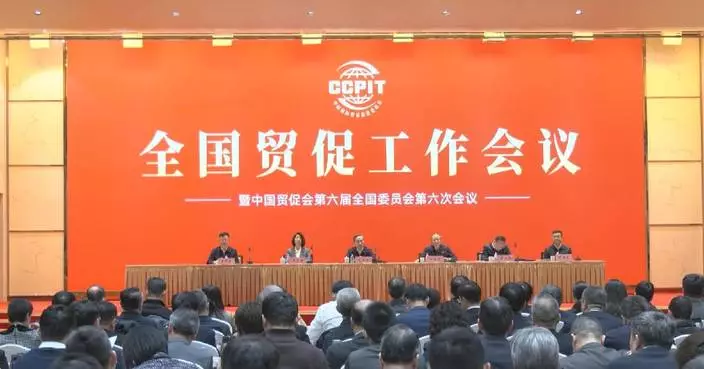
Chinese foreign trade, investment stabilized in 2025: officials

How French ex-senator trial brings national attention to drug-facilitated sexual assault

The Minneapolis area reacts to the immigration crackdown and the shooting of a protester, in photos

Trump administration's trust and credibility tested in wake of Pretti's death in Minneapolis

Bayer Investing More Than $45M CAD to Build World-Class Canola Research and Development Facility in Canada

Shopping event featuring cultural, New Year goods kicks off in Guangzhou

The Jimmy Lai Chronicle : What the Court was Told (6): A Million-Dollar Plot: Buying Access to Taiwan's Leader
UN calls for full implementation of ceasefire arrangements in Gaza
Brazil steps up program to help Venezuelan migrants resettle
Chinese shares close higher Tuesday
Chinese foreign trade, investment stabilized in 2025: officials
China launches school of space exploration to boost deep-space talent pool

Witness at Alexander brothers sex trafficking trial tells of celebratory night that became a horror
China, Finland integrate strengths to deepen cold-region research

Nearly half a million without power and dozens of deaths. A winter storm's toll, in numbers
Chinese defense minister holds video talk with Russian counterpart
Finnish PM's visit to China to deliver concrete business outcomes: official

How French ex-senator trial brings national attention to drug-facilitated sexual assault

The Minneapolis area reacts to the immigration crackdown and the shooting of a protester, in photos

Trump administration's trust and credibility tested in wake of Pretti's death in Minneapolis

Bayer Investing More Than $45M CAD to Build World-Class Canola Research and Development Facility in Canada
Shopping event featuring cultural, New Year goods kicks off in Guangzhou

The Jimmy Lai Chronicle : What the Court was Told (6): A Million-Dollar Plot: Buying Access to Taiwan's Leader
Feature·Bloggers

【Bastille Commentary】Britain’s Asylum Buffoonery: Even WSJ Can’t Look Away
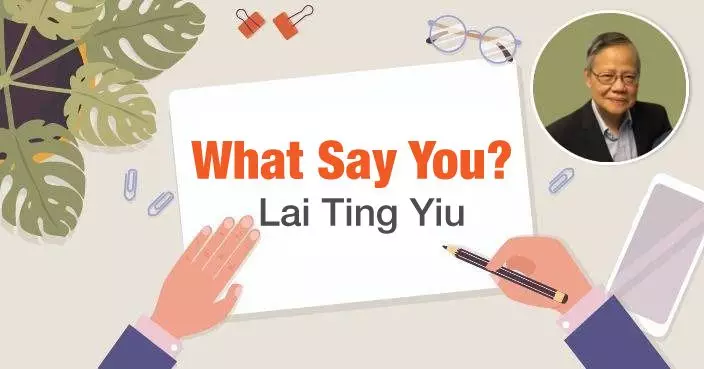
【What Say You?】Four Anti-China Factions Crushed in Embassy Battle—But They're Not Done Yet

【Bastille Commentary】The Real "Kangaroo Court": Where Power Buys Freedom

【Deep Throat】Canada Ditches Trump's Playbook, Slashes EV Tariffs

【Bastille Commentary】The Conservative Party's Fall from Grace
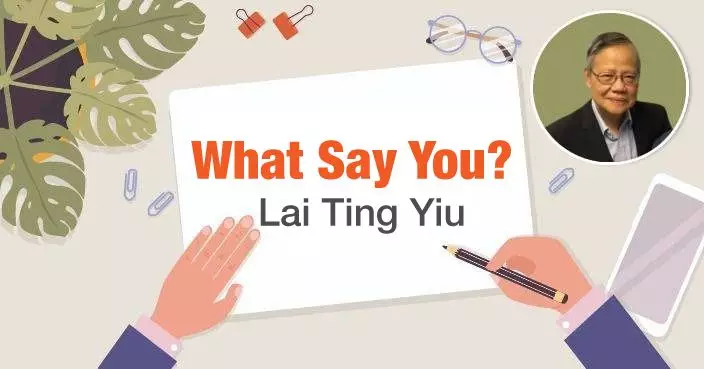
【What Say You?】Machado and Jimmy Lai: Flattery Masters, Trump’s Worthless Cards
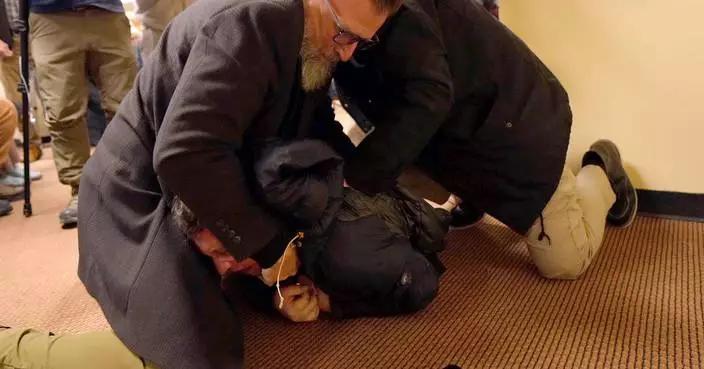
Man tackled to ground after spraying unknown substance on Rep. Ilhan Omar at Minneapolis town hall
- North Korea's Kim says upcoming party congress will unveil plans to bolster nuclear deterrent
- The Latest: Trump wants ‘honest’ investigation into ‘very sad’ killing of Minneapolis protester
- Trump-backed businessman Nasry Asfura sworn in as president of Honduras
- Trump visits Iowa trying to focus on affordability during fallout over shooting in Minneapolis
- Activists say Iran's crackdown has killed at least 6,221 people, as the country's currency plunges
- 'They were just screaming.' Mom unable to save 3 sons who fell through icy pond in Texas
- 2 federal officers fired shots during encounter that killed Alex Pretti, DHS tells Congress
- Nondrug Emotion Regulation Therapy Enters Pilot Program as Federal Mental Health System Faces Major Disruption
- Investigators say deadly midair collision near DC followed years of ignored warnings about traffic

Migratory birds in Jiangsu enjoy sunshine after cold wave
- Finns keen to deepen cooperation with China across the board
- Chinese premier urges integrity, anti-corruption efforts in government work
- Experts urge increased support for China's rapidly growing unicorns amid challenges
- Nigeria's non-oil exports surge to record high of 6.1 bln dollars in 2025
- ROK to implement tariff agreement with U.S., calmly respond to Trump's tariff hike announcement
- Finns welcome pragmatic approach to win-win cooperation with China
- China-Canada new strategic partnership brings new, reciprocal opportunities: experts
- Chinese PLA aerobatic team's J-10 jets arrive in Singapore for airshow
- European Parliament delays decision on EU-U.S. trade deal
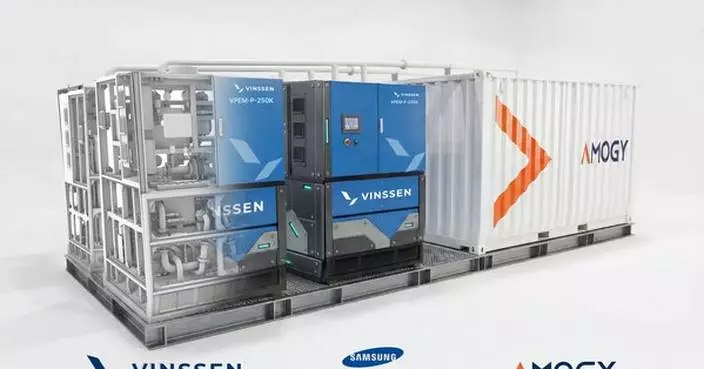
VINSSEN, Samsung Heavy Industries, and Amogy Partner on Ammonia-Hydrogen Fuel Cell Power Pack for Zero-Carbon Maritime Industry
- 【2026 Japan Travel】Gather at Shinkansen & Major JR stations, direct to Japan's natural wonders!
- 2026 Japan Travel with Club Tourism: Gather at Shinkansen & Major JR stations, direct to Japan's natural wonders
- Another strike sends 31,000 Kaiser Permanente health care workers to picket lines
- Amazon to close Amazon Go and Amazon Fresh to concentrate on Whole Foods and grocery delivery
- UPS retires fleet of MD-11 aircraft involved in deadly Kentucky crash
- Texas Gov. Greg Abbott halts new H-1B visa petitions at state agencies and universities
- Colombia blasts Ecuador's pipeline fee hike as trade war between neighbors escalates
- Judge rules Massachusetts offshore wind project halted by Trump administration can continue
- Tourism in Cuba plummets as tensions with US increase and Venezuela oil shipments drop

Trump administration announces 15 new drugs for Medicare price negotiation program
- French ex-senator sentenced to prison for drugging fellow lawmaker in order to sexually abuse her
- Neil Young's gift to Greenland: Free access to his entire music catalog
- Trump's use of AI images pushes new boundaries, further eroding public trust, experts say
- TikTok settles as social media giants face landmark trial over youth addiction claims
- IShowSpeed wraps up Africa tour highlighting the continent's cultural diversity
- Not ready for robots in homes? The maker of a friendly new humanoid thinks it might change your mind
- French lawmakers approve bill banning social media for children under 15
- Australia swelters in a record heat wave as temperatures near 50 C
- Photos show aquagym classes in Senegal helping people with reduced mobility

Chanel couture gets a breath of fresh air and stars. Armani revamps
- Philip Glass cancels Kennedy Center symphony premiere in protest of Trump's leadership
- What travelers can expect as Southwest Airlines introduces assigned seats
- Ralph Fiennes, star of stage and screen, makes opera debut in Paris directing `Eugene Onegin'
- Caitlin Clark joining NBC's 'Sunday Night Basketball' for Lakers-Knicks pregame at MSG
- ‘One Battle After Another’ leads the pack in nominations for UK’s BAFTA film awards
- How artist Gordon Parks' foundation keeps his legacy growing 20 years after his death
- King Charles III believes ‘harmony’ can help save the planet. His documentary explains how
- Bring the desert’s warmth indoors this winter with big, bold succulents
- Antoine Fuqua's ‘Troublemaker' lets Nelson Mandela speak for himself

Raiders lose 2 head coach candidates as Joe Brady and Brian Daboll take new roles
- Bill Belichick snubbed by Pro Football Hall of Fame in first year of eligibility, report says
- Drake Maye says he didn't injure his shoulder during AFC title game but will benefit from extra rest
- Indiana's title defense will feature back-to-back matchups with Ohio State and Michigan
- Late to practice? That's $500 as Deion Sanders institutes bigger fines for violating team rules
- Aston Villa signs striker Tammy Abraham from Besiktas
- Peralta willing to consider multiyear deal with Mets but wants to get settled in New York first
- Sean Payton says Broncos QB Bo Nix has an ankle condition that made break inevitable
- Houston's Jose Altuve and Carlos Correa to miss World Baseball Classic due to insurance issues
- Swiss skier Meillard wins last GS before Olympics and denies Pinheiro Braathen 2nd win for Brazil

Police Announce Special Traffic Arrangements for Happy Valley Race Meeting Today
- Hong Kong Celebrates International Customs Day 2026 with Focus on Vigilance and Commitment in Law Enforcement
- TAC Supports New Seat Belt Law to Enhance Passenger Safety in Hong Kong
- Financial Secretary Highlights Hong Kong Customs' Role in Global Trade at International Customs Day 2026
- John Lee Strengthens Global Ties at Asian Financial Forum with AIIB and Middle Eastern Officials
- Civil Service College Hosts Talk on China-U.S. Relations for HKSAR Officials
- Hong Kong Launches International Correctional Services Tactics Training Academy to Enhance Global Law Enforcement Collaboration
- Man Jailed for Six Months and Fined for Smuggling 65,000 Duty-Not-Paid Cigarettes into Hong Kong.
- HKPF and Vietnam Sign MOU to Strengthen Cooperation Against Transnational Crimes
- Hong Kong Faces Serious Air Pollution Levels, Health Risks Advisories Issued
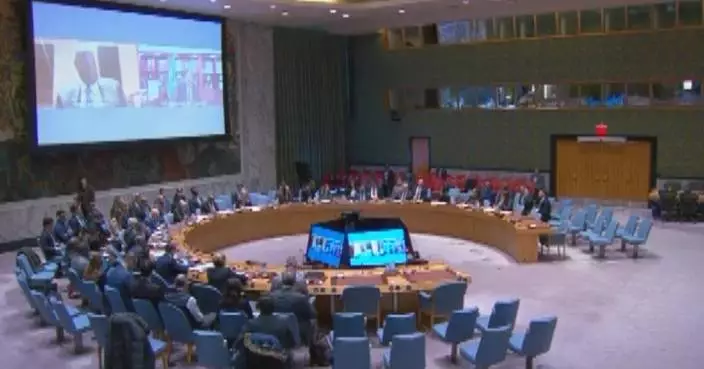
UN chief calls for restoration of int'l rule of law
- China's top legislator holds talks with president of Senegalese National Assembly
- Chinese vice president meets with president of Senegalese National Assembly
- Former WTO chief urges world to resist US protectionism, uphold multilateralism
- China's top legislator meets Finnish PM
- China willing to deepen cooperation with Finland for higher-level mutual benefits: premier
- Chinese premier holds welcome ceremony for Finnish PM
- Thousands of Venezuelan migrants cross into Brazil after US strikes
- China's new space exploration school aims to train next-generation deep-space talents
- China rebukes Japan's UN remarks, urges concrete actions to correct its wrongdoings
Category · News

Man tackled to ground after spraying unknown substance on Rep. Ilhan Omar at Minneapolis town hall

North Korea's Kim says upcoming party congress will unveil plans to bolster nuclear deterrent

The Latest: Trump wants ‘honest’ investigation into ‘very sad’ killing of Minneapolis protester

Trump-backed businessman Nasry Asfura sworn in as president of Honduras

Trump visits Iowa trying to focus on affordability during fallout over shooting in Minneapolis

Police Announce Special Traffic Arrangements for Happy Valley Race Meeting Today
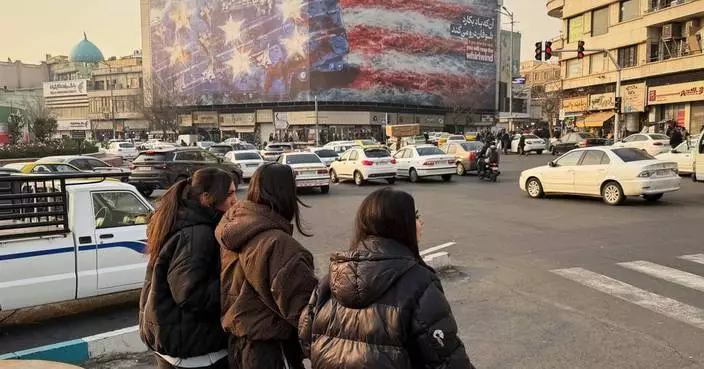
Activists say Iran's crackdown has killed at least 6,221 people, as the country's currency plunges

'They were just screaming.' Mom unable to save 3 sons who fell through icy pond in Texas

VINSSEN, Samsung Heavy Industries, and Amogy Partner on Ammonia-Hydrogen Fuel Cell Power Pack for Zero-Carbon Maritime Industry

【2026 Japan Travel】Gather at Shinkansen & Major JR stations, direct to Japan's natural wonders!

2026 Japan Travel with Club Tourism: Gather at Shinkansen & Major JR stations, direct to Japan's natural wonders

2 federal officers fired shots during encounter that killed Alex Pretti, DHS tells Congress

Nondrug Emotion Regulation Therapy Enters Pilot Program as Federal Mental Health System Faces Major Disruption

Investigators say deadly midair collision near DC followed years of ignored warnings about traffic

Homeland Security Secretary Kristi Noem faces rising calls for her firing or impeachment

Man wounded after exchanging gunfire with Border Patrol agents near US-Mexico border

Raiders lose 2 head coach candidates as Joe Brady and Brian Daboll take new roles
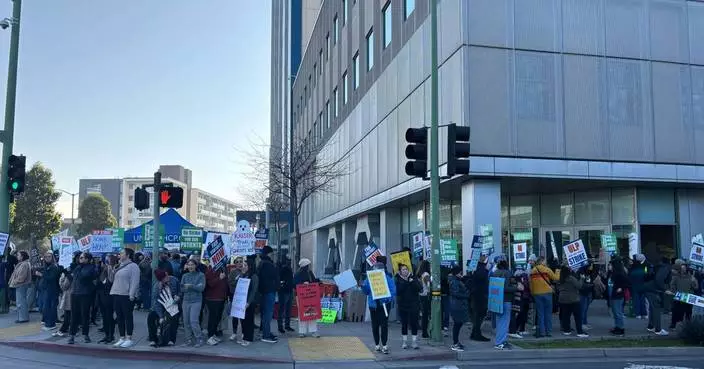
Another strike sends 31,000 Kaiser Permanente health care workers to picket lines
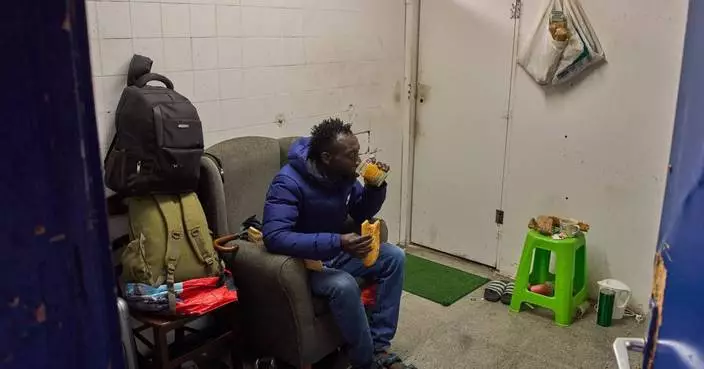
Spain is granting legal status to immigrants lacking authorization — potentially 500,000 people

Trump warns Iraq against returning former PM al-Maliki to power amid worries about Iran influence

Man who beat 4 people to death on NYC streets heard voices telling him to kill, lawyer says

Bill Belichick snubbed by Pro Football Hall of Fame in first year of eligibility, report says
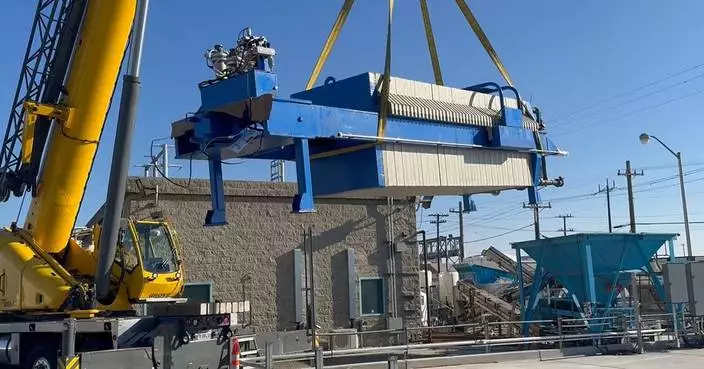
Blue Planet and Hargrove Execute Master Service Contract

Amazon to close Amazon Go and Amazon Fresh to concentrate on Whole Foods and grocery delivery

Drake Maye says he didn't injure his shoulder during AFC title game but will benefit from extra rest

Indiana's title defense will feature back-to-back matchups with Ohio State and Michigan

Trump administration announces 15 new drugs for Medicare price negotiation program
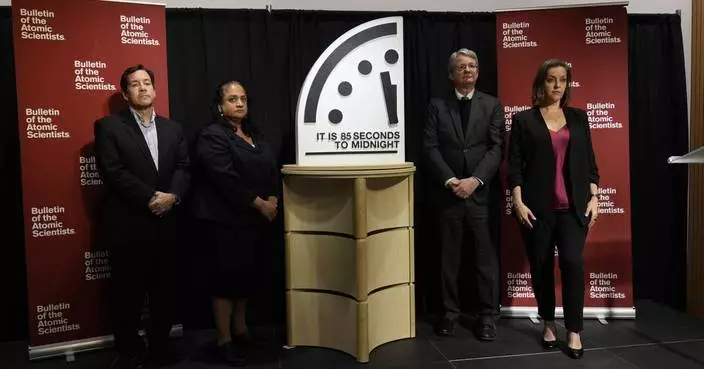
'Doomsday Clock' moves closer to midnight over threats from nuclear weapons, climate change and AI
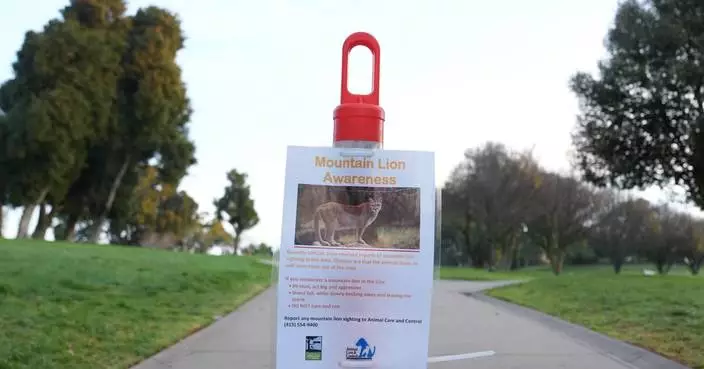
Mountain lion roams posh San Francisco neighborhood before being captured
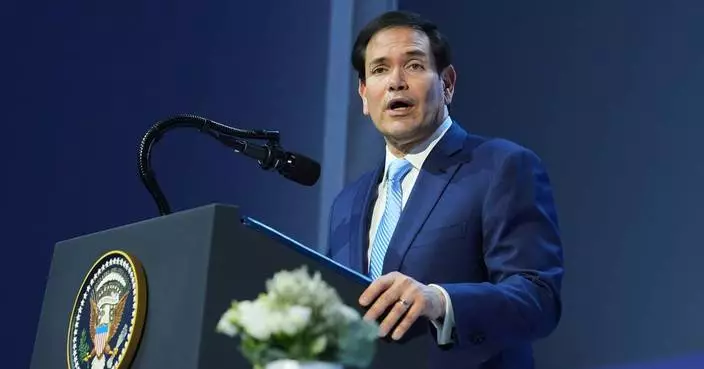
US takes first steps to possibly reopen embassy in Venezuela after Maduro's ouster

Late to practice? That's $500 as Deion Sanders institutes bigger fines for violating team rules
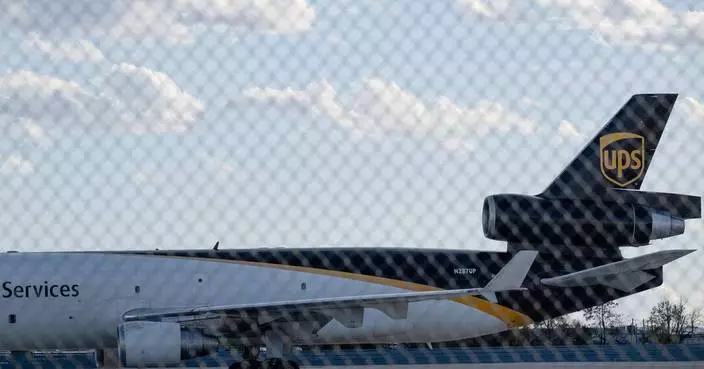
UPS retires fleet of MD-11 aircraft involved in deadly Kentucky crash

Aston Villa signs striker Tammy Abraham from Besiktas

Texas Gov. Greg Abbott halts new H-1B visa petitions at state agencies and universities
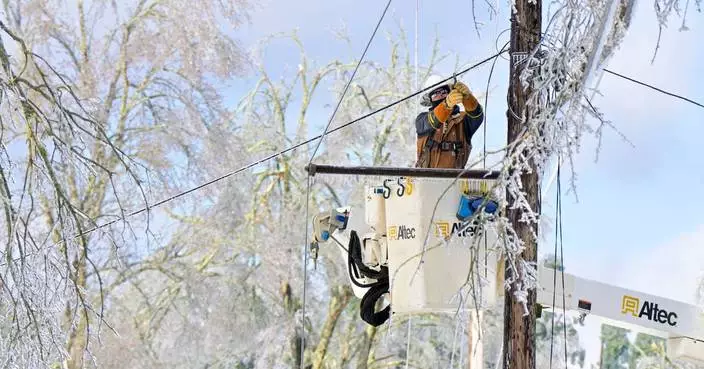
Bitter cold grips the eastern US as winter storm deaths rise and power outages linger

Innovaccer Unveils AI Platforms as Healthcare Leaders Debate Economics, Workforce Constraints, and Administrative Burden at Xccelerate 2026
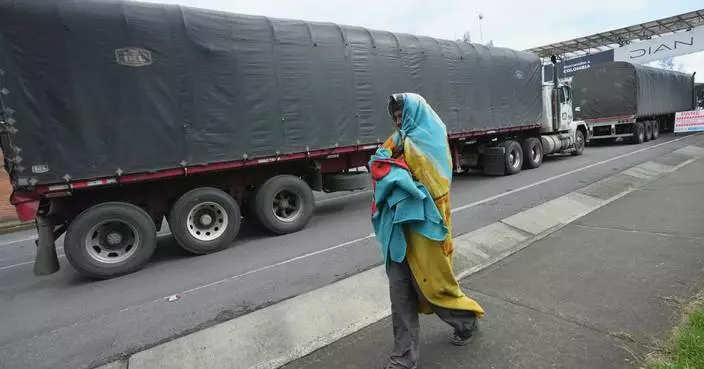
Colombia blasts Ecuador's pipeline fee hike as trade war between neighbors escalates

Maine plane crash victims include event planner and corporate pilot

Peralta willing to consider multiyear deal with Mets but wants to get settled in New York first
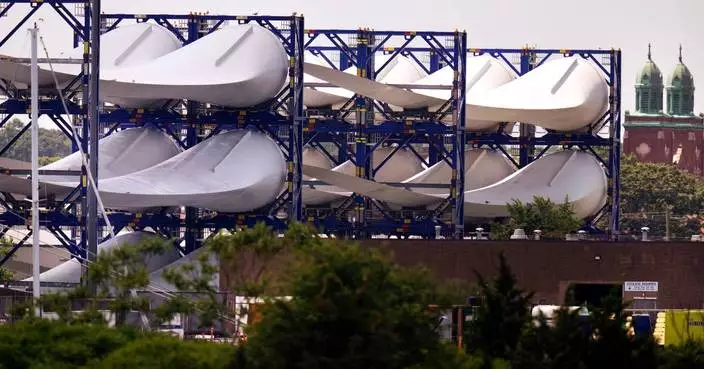
Judge rules Massachusetts offshore wind project halted by Trump administration can continue

Sean Payton says Broncos QB Bo Nix has an ankle condition that made break inevitable
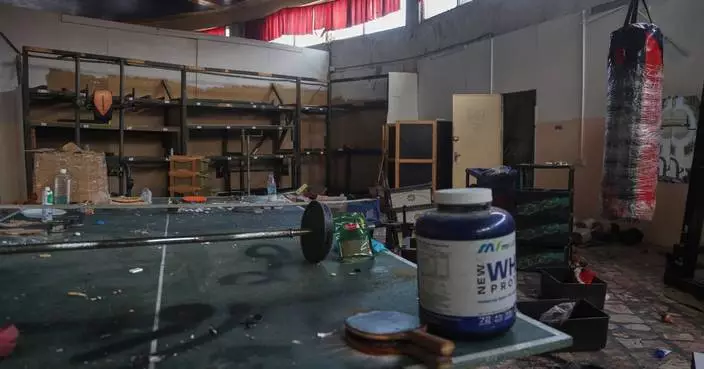
Russian forces begin pulling out of bases in northeast Syria

Houston's Jose Altuve and Carlos Correa to miss World Baseball Classic due to insurance issues
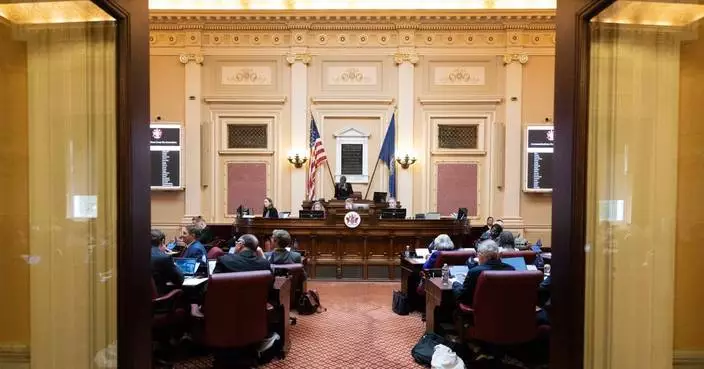
Judge finds Virginia Democrats' redistricting resolution illegal

Swiss skier Meillard wins last GS before Olympics and denies Pinheiro Braathen 2nd win for Brazil

Utah mom who believed in 'end of times' is arrested over taking kids to Croatia

Tourism in Cuba plummets as tensions with US increase and Venezuela oil shipments drop
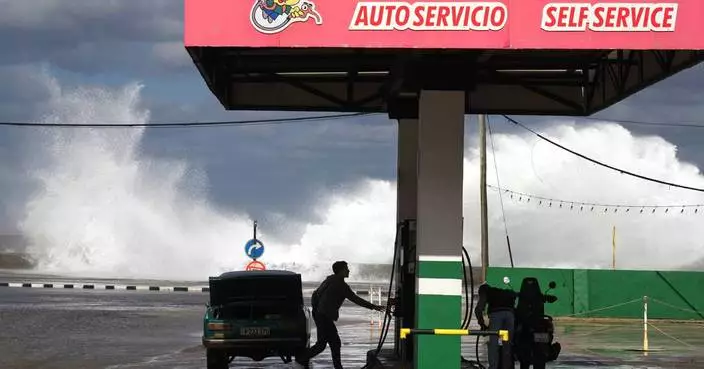
Mexican president says her country has paused oil shipments to Cuba

Cavaliers' Evan Mobley sidelined again with calf strain, expected to miss 1 to 3 weeks

Bills promote offensive coordinator Joe Brady to take over as head coach

'It just seemed like it was meant to be.' Mike McCarthy comes home to coach the Pittsburgh Steelers

Chanel couture gets a breath of fresh air and stars. Armani revamps

Leipzig settles for a draw as Hoffenheim wins in weather-delayed Bundesliga games

KENT® Nutrition’s ARGIS® Wins IPPE Best of the Best Award

French ex-senator sentenced to prison for drugging fellow lawmaker in order to sexually abuse her

Dreame Unveils "Beyond Smart" Home Ecosystem in Silicon Valley, Showcasing a Future of Robotic Autonomy and AI-Powered Living
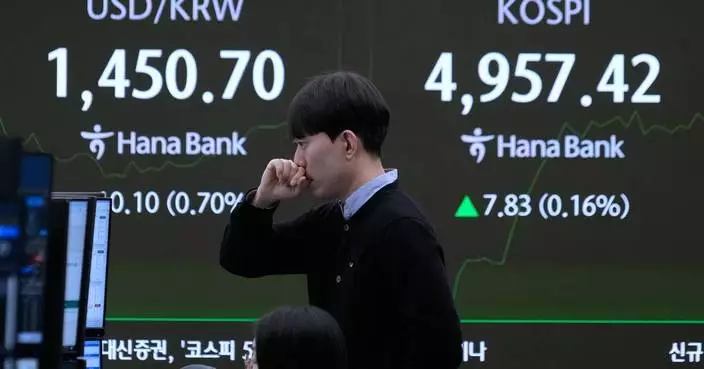
Wall Street sets a record while the US dollar's value slides again

Neil Young's gift to Greenland: Free access to his entire music catalog

Chicago man cleared in Border Patrol bounty trial now faces immigration proceedings

Philip Glass cancels Kennedy Center symphony premiere in protest of Trump's leadership

Seattle Mariners broadcaster Rick Rizzs will retire after 2026 season, his 41st with the franchise

Duke and QB Darian Mensah reach settlement to resolve legal fight, clearing way for his transfer
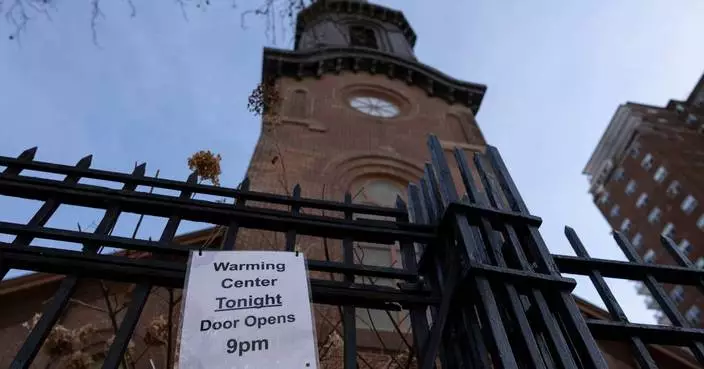
Ten people die in NYC's frigid cold, raising questions about the city's preparedness

Minneapolis shooting scrambles Second Amendment politics for Trump

India and EU clinch the 'mother of all deals' in a historic free trade agreement
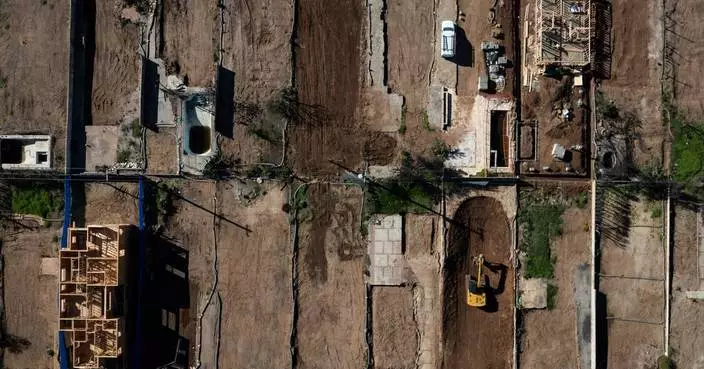
Trump executive order seeks to speed up rebuilding of homes destroyed by Los Angeles wildfires
Migratory birds in Jiangsu enjoy sunshine after cold wave

Lyft Welcomes Deborah Hersman to Board of Directors

International Holocaust Remembrance Day, in photos
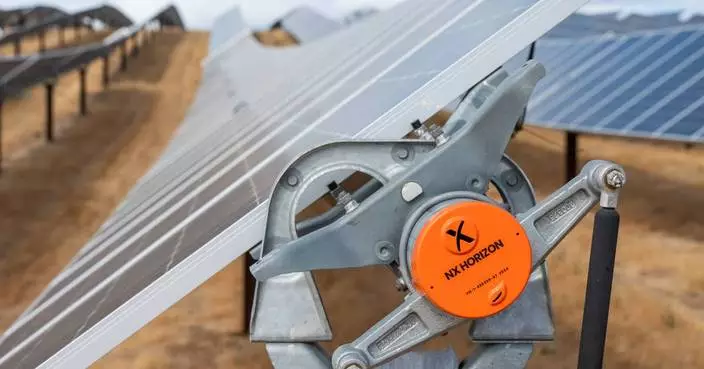
Nextpower Arabia to Supply 2.25 GW of Smart Solar Trackers to L&T for ACWA Power Consortium’s Bisha Solar Project

Carney rolls his eyes at US Treasury secretary, says he told Trump he meant what he said at Davos
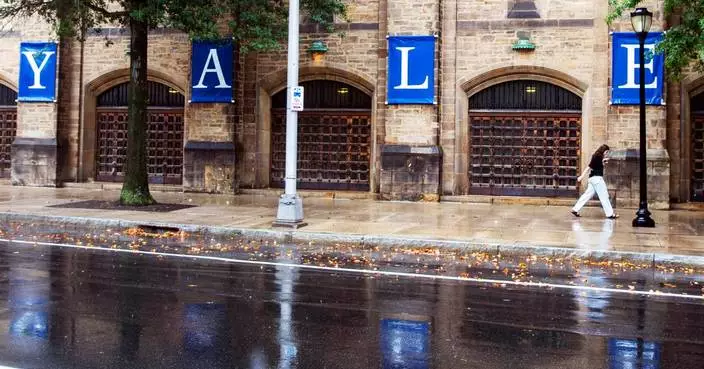
Yale to waive all costs for new undergraduates from families earning less than $100,000

What travelers can expect as Southwest Airlines introduces assigned seats

Tough coaching helped Pats QB Drake Maye flourish in his second season
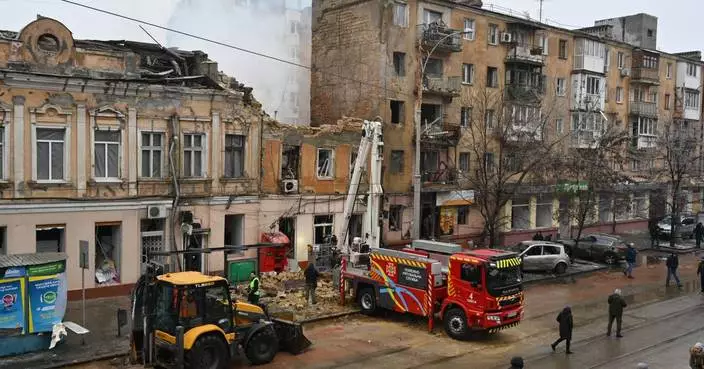
Russian drones kill 3 and wound children in Ukraine as Zelenskyy urges speedier diplomacy
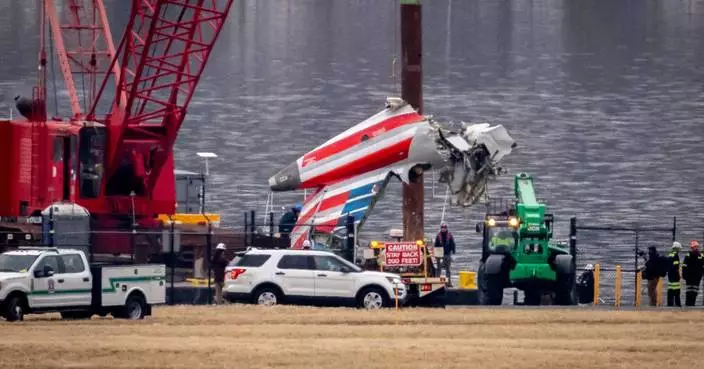
Timeline of the year since an Army helicopter and plane collided over Washington, DC

Jets' latest coaching staff shakeup: Tanner Engstrand out as offensive coordinator, AP source says

Israel marks the return of the final hostage's remains after more than two years of war and grief

What to know about Gregory Bovino, the commander of Trump's immigration crackdown

Sean Payton's gamble: The decision that derailed the Broncos' Super Bowl dreams

Trump's immigration crackdown led to drop in US growth rate last year as population hit 342 million

Koepka is excited to be back on the PGA Tour. It comes with nervousness over how he's received

Bidgely Champions "AI Built for Your Reality" at DistribuTECH 2026, Unveils New Strategy for Unified Grid Intelligence

NBT Bank Promotes Gina Rossi to Chief Marketing Officer




